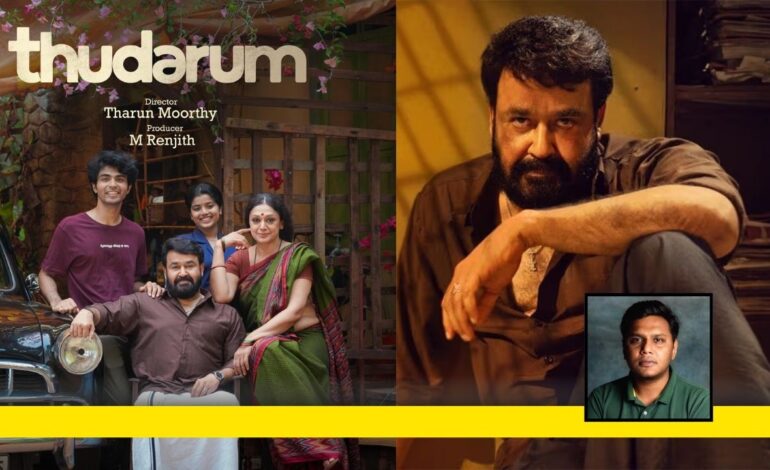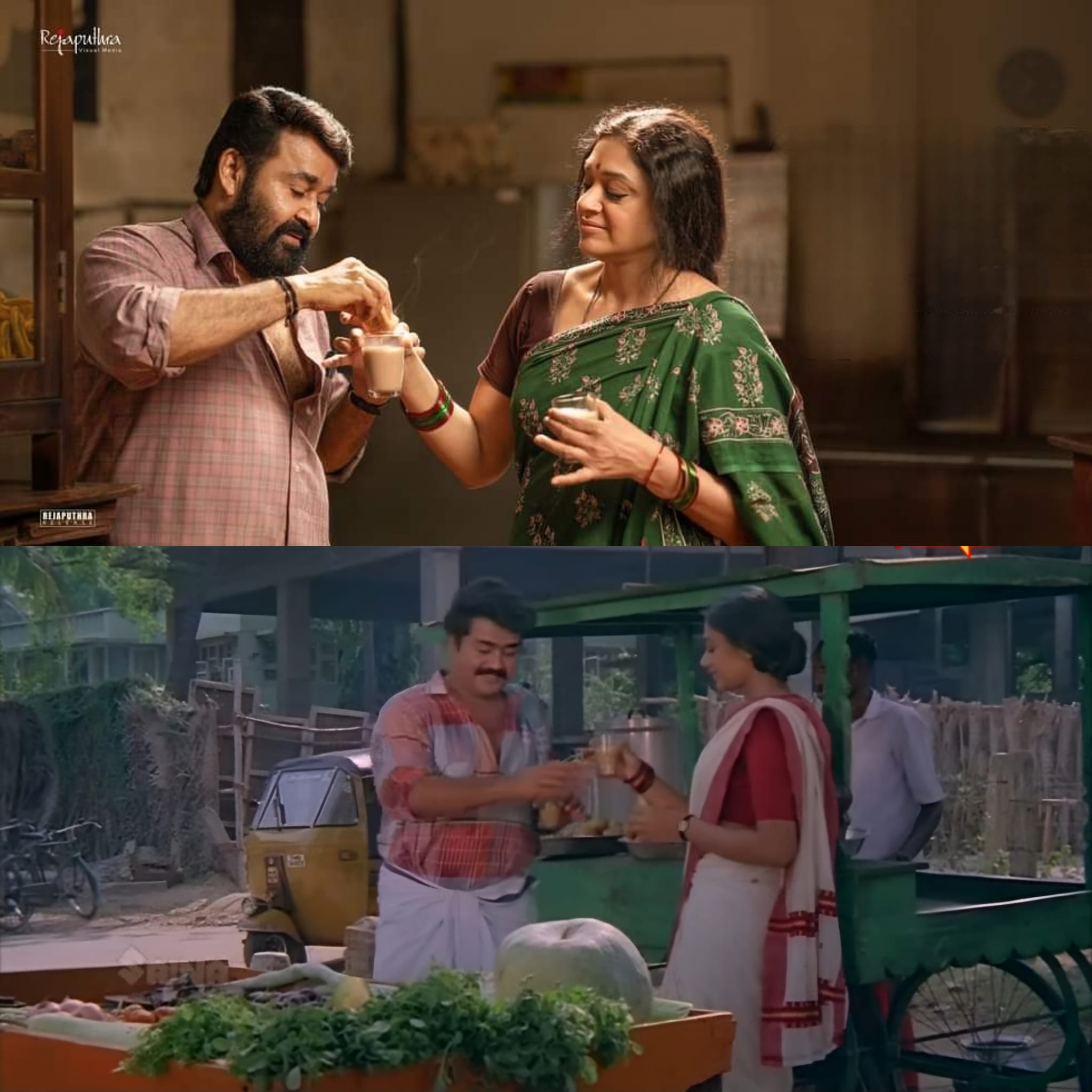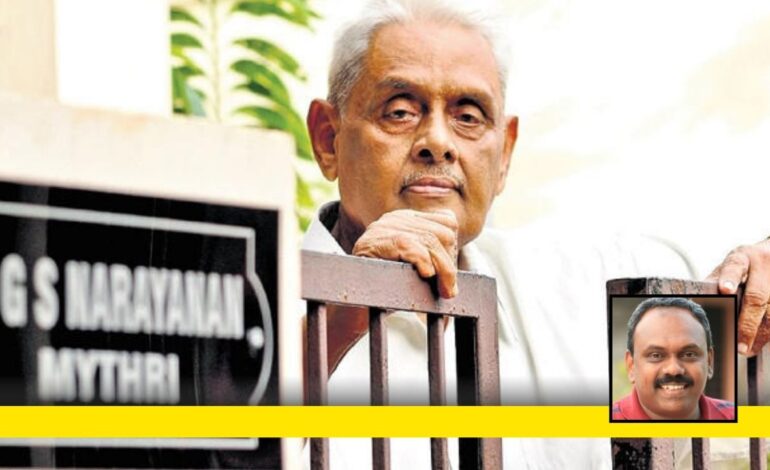
Some stories are watched, and some are inherited. For many of us who grew up mouthing dialogues before we understood them, Mohanlal wasn’t just an actor; he was emotional infrastructure. So when Thudarum arrived, it wasn’t just another film, it was a checkpoint in a fan’s lifelong negotiation with nostalgia, disappointment, loyalty, and cinematic evolution. This review is not an ode, nor an elegy. It’s an honest attempt to examine how a film that should have faltered, somehow soared. And perhaps, why that matters more than we admit. [⚠️ SPOILER ALERT]
I am a Mohanlal fan; there is nothing to be ashamed of. My adolescence and much of early adulthood were steeped in blockbuster Lalettan films. However, I am aware that this connection could make my views biased, or even worse, push me into overcompensating in my attempt to appear ‘fair’. This review may contain some spoilers, but what is a movie review without them? I am also not entirely certain whether I should be brutally honest, for over the years I have come to realise that brutal honesty may not always be the most effective path. So, hold tight — here we go!
Over the past decade, the genre that has most consistently worked for Mohanlal, also known as A10, has been the thriller, particularly those at the crossroads of thriller and action. The generation who secured their voting rights in 2025 — now constituting approximately sixty percent of the paying audience — have grown up immersed in this very genre. Thus, the best way to capture this audience persona is, naturally, another thriller-action film starring A10. The research insight is astute and clearly paying off. The writer of Thudarum even displayed the integrity to openly admit this strategy in the movie, almost confessing to the audience what lay ahead of them.

I watched Thudarum on its first day of release and absolutely loved it, to the extent that some of the script’s shortcomings were easy to forgive. I believe that the self-referential humour — the ‘self-trolls’ — serves as Mohanlal’s moral restitution to the fans, an overdue atonement for the missteps of the past decade. Thematically, Thudarum aligns with previous successful Mohanlal films, yet the plot itself is remarkably clichéd — in simple terms, A10’s character kills the man responsible for his child’s death, and that is the core of the story. Nevertheless, it succeeds — and the pertinent question is, how? I am attempting to understand the mechanics of this success, and if my analysis appears lacking, I request you to kindly pardon the mutinous hallucinations of this adolescent.
Thematic Coherences
In an attempt to comprehend Thudarum’s runaway success, I employed an iterative deviant analysis, focusing particularly on films that achieved unexpected results despite adhering to familiar success formulas. Structurally, the first half of Thudarum is driven by a playful and charming Mohanlal, while the second half sees him evolve into a matador-like figure — relentless in his pursuit of vengeance, yet ultimately surrendering to the law.
To illuminate this structure, let us consider two other films: one that succeeded and one that failed — Drishyam and Aarattu, respectively. Both films feature the “cute and smooth” Mohanlal in their first halves: in Drishyam, defending his family and in Aarattu, avenging the death of an important someone’s parents — both themes being tried-and-tested emotional anchors and historical success. However, in their second halves, the contrast is stark. Drishyam presents a class struggle, wherein an unassuming underdog-hero uses his vulnerability to triumph against bourgeois wrongdoers whilst subverting the law. In Aarattu, however, we encounter a slick, law-abiding protagonist — “Agent X” — who eliminates a radical group without any personal emotional stake in the conflict.

By contextualising Thudarum against these cases reveal a clear broad thematic constants: namely, that playfulness combined with the pursuit of justice for personal reasons resonates strongly with audiences, whereas detachment from personal stakes, even when serving righteousness, often alienates them. Thudarum deliberately exploits these patterns to great effect. However, the supporting characters, including a finely portrayed villain, seem to reduce themselves to mere narrative props, existing primarily to frame Mohanlal’s performance. It is a carefully orchestrated choice, and it succeeds spectacularly.
The Performance Repertoire
In analysing A10’s performance, I found myself deeply conflicted. Was it a singular, coherent performance for this specific film, or was Thudarum a curated showcase of Mohanlal’s full acting aresnal? It did not feel incongruous; in fact quite the opposite — it felt, finally, like scratching the itch that had long remained untended.

Mohanlal amalgamates various shades of his past iconic roles into Shanmughan’s character: the slapstick exuberance of Boeing-Boeing, the eerie, psychotic intensity of Bhramaram, the helplessness of Thanmathra, the athleticism of Ravanaprabhu and the cold, steely resolve of Drishyam. These elements are carefully woven together, culminating in a much-anticipated cathartic revenge sequence that conforms impeccably to the tried-and-tested success formula.
However, while the composition and performance are undoubtedly brilliant, there remains a lingering sense that they may be undermined by their very technical perfection. As Sidney Lumet observed, “Great acting is never technical. If it becomes technical, it is dead.” Here, the brilliance sometimes borders on over-stylised craft, risking, albeit briefly, the sensation of a meta-performance that plays too safe.
Ethical Conflicts
I believe the revenge trope endures because it draws upon a universal narrative: the hero who protects the righteous, punishes the wicked and settles the scales of justice. This resonates deeply with values ingrained in most of us, whether through karmic beliefs or spiritual traditions inculcated from a young age.
Thudarum captures this resonance masterfully and I found the climax sequence particularly satisfying. Yet, I could not help but notice a notable deviation: after exacting vengeance, Shanmughan surrenders to the law. This moment recalled the satirical jibes of Saroj Kumar regarding heroism.Not to undermine the character, but Shanmughan’s arc evoked many of A10’s past performances, making comparison inevitable.

In particular, Georgekutty of Drishyam never conceded. Thus, the questions arise: does conceding elevate subaltern heroism, infusing it with moral accountability, or does it diminish it by legitimising a flawed system? Would Shanmughan’s retreat into exile, aside from the obvious opening the door to a sequel, have been more powerful? Is Shanmughan’s act of surrender informed by his apparent Hindu notions of dharma, or by a pragmatic faith that his social identity will elicit favourable treatment from the prevailing legal system? These questions, though unresolved, deepen the complexity of the narrative.
Final Reflections
For whatever it is worth, Thudarum is a fantastic film, rich with repeat-watch value and, more importantly, it delivers the precise cinematic reawakening that A10 and his sleeper-cell fans such as myself needed. I am confident that the film leaves Aarattu far behind, although it does not quite scale the heights of Drishyam. Nonetheless, my heartfelt congratulations to the entire team. I wish them every success in their continued winning streak and selfishly hope that it eventually funds a Vanaprastham 2.0.












“Final Reflections
For whatever it is worth, Thudarum is a fantastic film, rich with repeat-watch value and, more importantly, it delivers the precise cinematic reawakening that A10 and his sleeper-cell fans such as myself needed.”
😁😁 I don’t know if the author is part is this group.. if yes, apologies..
This is a junk, abhorrent, violent, cliched, movie.. no decorations will let the level of cringey and blatant violence look nice.. so called A10 should do something better if he has lost his sense of cinema and acting !! he cannot say that he is doing it for a living..
I too grew up watching A10 and love to see his films..
And now to the aidem editorial team.. why such kolaveri 🥹🥹